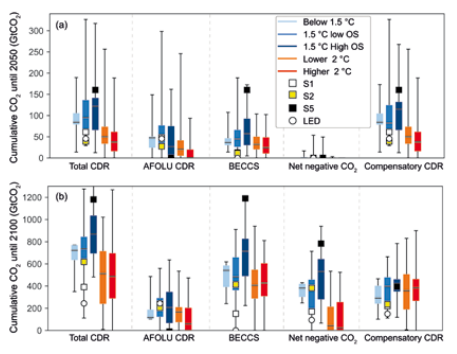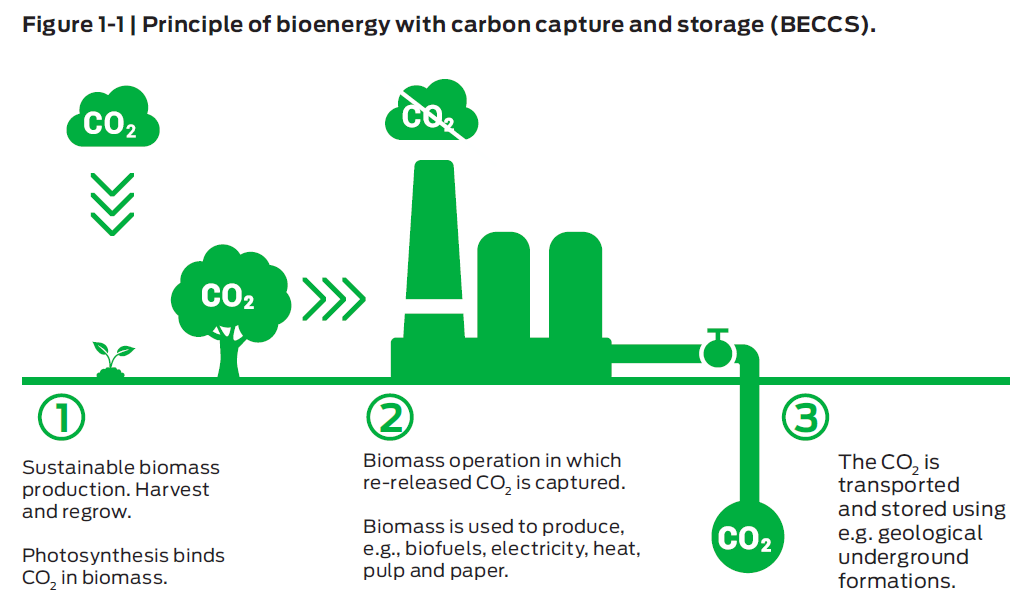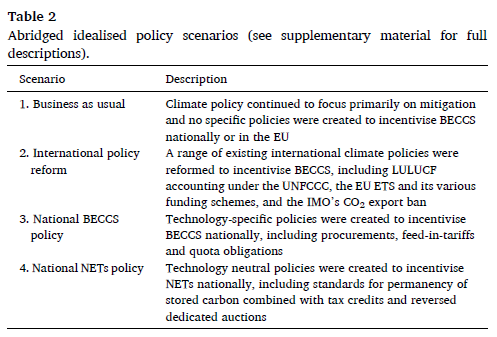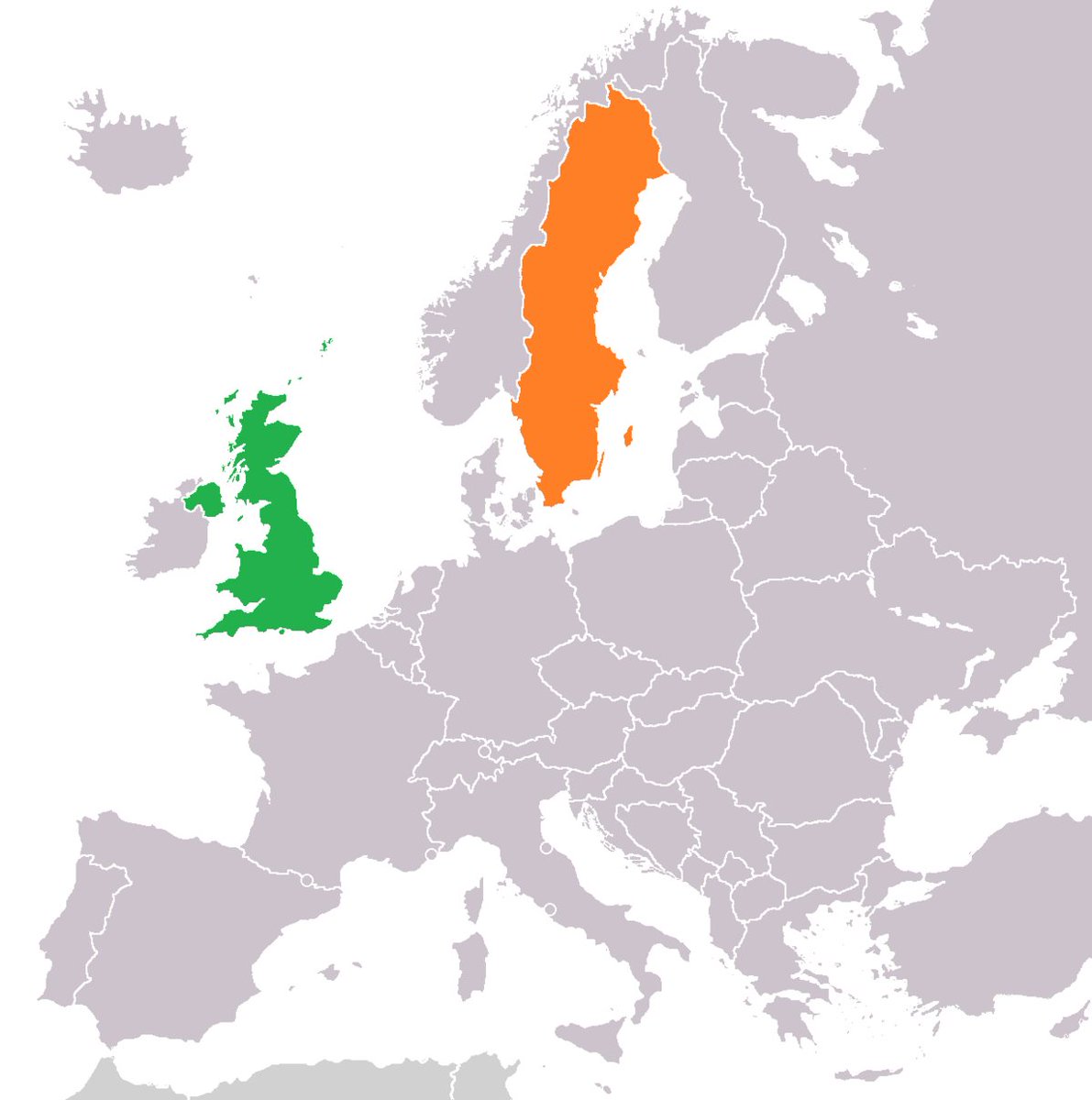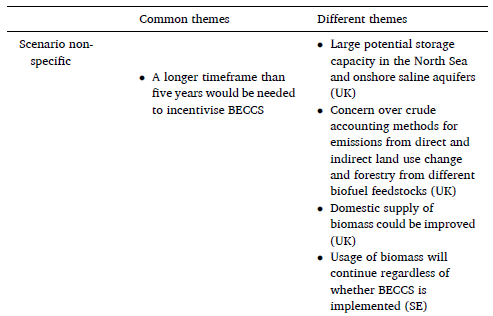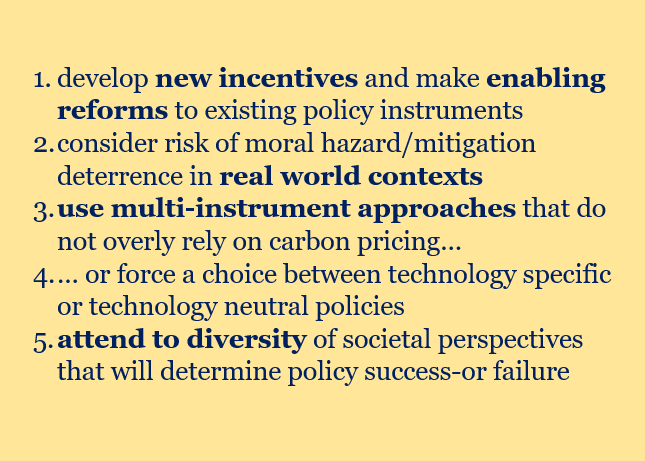Bioenergy with carbon capture and storage (BECCS) plays a central role in scenarios that limit global warming to well below 2 degrees, with a median deployment of 480 GtCO2 removed over the course of the 21st century. But policy efforts to incentivise BECCS are still rare 2/12
BECCS must be incentivised responsibly through policy-making processes that account for geographically varying societal values and interests (as should any approach to tackling climate change, I might add) #geography 3/12
We make the case for responsible incentivisation by undertaking a comparative analysis of stakeholder attitudes to four idealised policy scenarios for BECCS in the UK and Sweden 4/12
UK and Sweden are at the forefront of drives towards #netzero and have BECCS demo projects, but have very different contexts, e.g. biomass = only 6% total primary energy supply in UK but 25% in SE, while UK has the significant domestic capacity for CO2 storage 5/12
It should come as no surprise that BECCS is unlikely to progress in either context without the creation of new incentives and enabling reforms in policy frameworks 6/12
Stakeholders were VERY alert to risks of moral hazard/mitigation deterrence (delaying or deterring emissions reductions), which suggests that concerns may be less applicable to the real world than they are to integrated assessment models 7/12
Pricing levels of £40/480 SEK /tCO2 for tradeable EUAs (European Union Allowances) and £45/540 SEK for fixed payment tax credits are considered too low to stimulate investment in BECCS 8/12
Policymakers face a dilemma between technology specific and technology neutral policies: t-specific would incentivise BECCS, but disadvantage other carbon removal methods, and t-neutral would incentivise other carbon removal methods, but disadvantage BECCS 9/12
We find common themes across contexts but also important differences, e.g. preference for ‘contracts for difference’ scheme in the UK which gives a guaranteed price for electricity generated 10/12
Interestingly this contrasts with our earlier research which showed public opposition to BECCS under this kind of incentive – stressing the importance of attending to differences in perspective within countries as well as between them https://twitter.com/DrRobBellamy/status/1096014304485302273?s=20">https://twitter.com/DrRobBell... 11/12
So, what does all this mean for research and policy going forward? We have 5 recommendations #scipol 12/12

 Read on Twitter
Read on Twitter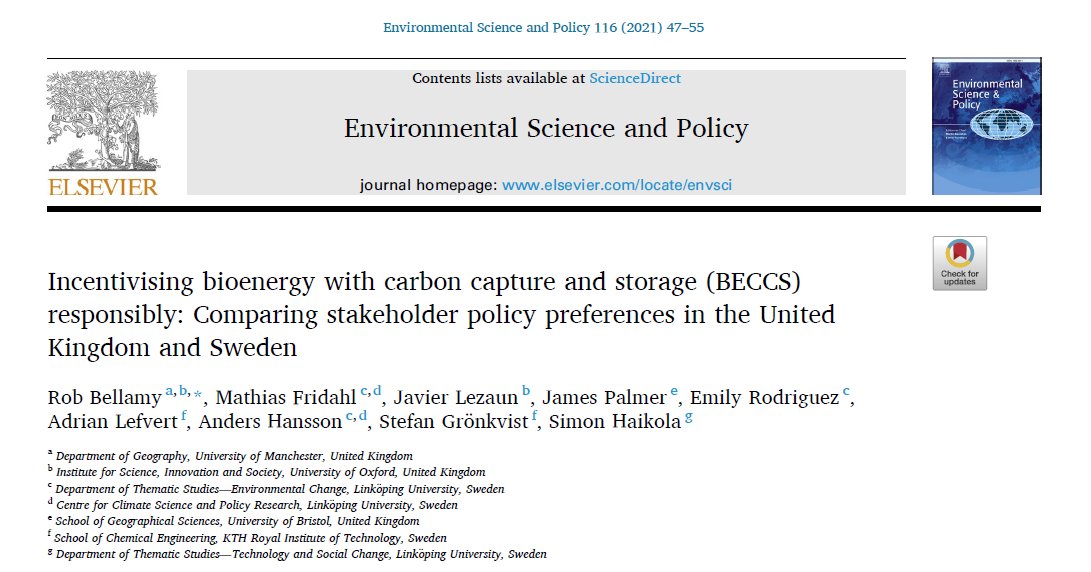 New paper claxon!https://abs.twimg.com/emoji/v2/... draggable="false" alt="🚨" title="Polizeiautos mit drehendem Licht" aria-label="Emoji: Polizeiautos mit drehendem Licht">How can we incentivise bioenergy w/ CCS responsibly? https://authors.elsevier.com/a/1c6P55C... w/ me @MathiasFridahl, J Lezaun, @JamesR_Palmer, @emilygrod, A Lefvert, A Hansson, S Haikola, S Grönkvist @GeographyUOM @InSIS @SERG_Geog_UoM @UoM_MERI #climatechange #ClimateAction https://abs.twimg.com/hashflags... draggable="false" alt="">" title="https://abs.twimg.com/emoji/v2/... draggable="false" alt="🚨" title="Polizeiautos mit drehendem Licht" aria-label="Emoji: Polizeiautos mit drehendem Licht">New paper claxon!https://abs.twimg.com/emoji/v2/... draggable="false" alt="🚨" title="Polizeiautos mit drehendem Licht" aria-label="Emoji: Polizeiautos mit drehendem Licht">How can we incentivise bioenergy w/ CCS responsibly? https://authors.elsevier.com/a/1c6P55C... w/ me @MathiasFridahl, J Lezaun, @JamesR_Palmer, @emilygrod, A Lefvert, A Hansson, S Haikola, S Grönkvist @GeographyUOM @InSIS @SERG_Geog_UoM @UoM_MERI #climatechange #ClimateAction https://abs.twimg.com/hashflags... draggable="false" alt="">" class="img-responsive" style="max-width:100%;"/>
New paper claxon!https://abs.twimg.com/emoji/v2/... draggable="false" alt="🚨" title="Polizeiautos mit drehendem Licht" aria-label="Emoji: Polizeiautos mit drehendem Licht">How can we incentivise bioenergy w/ CCS responsibly? https://authors.elsevier.com/a/1c6P55C... w/ me @MathiasFridahl, J Lezaun, @JamesR_Palmer, @emilygrod, A Lefvert, A Hansson, S Haikola, S Grönkvist @GeographyUOM @InSIS @SERG_Geog_UoM @UoM_MERI #climatechange #ClimateAction https://abs.twimg.com/hashflags... draggable="false" alt="">" title="https://abs.twimg.com/emoji/v2/... draggable="false" alt="🚨" title="Polizeiautos mit drehendem Licht" aria-label="Emoji: Polizeiautos mit drehendem Licht">New paper claxon!https://abs.twimg.com/emoji/v2/... draggable="false" alt="🚨" title="Polizeiautos mit drehendem Licht" aria-label="Emoji: Polizeiautos mit drehendem Licht">How can we incentivise bioenergy w/ CCS responsibly? https://authors.elsevier.com/a/1c6P55C... w/ me @MathiasFridahl, J Lezaun, @JamesR_Palmer, @emilygrod, A Lefvert, A Hansson, S Haikola, S Grönkvist @GeographyUOM @InSIS @SERG_Geog_UoM @UoM_MERI #climatechange #ClimateAction https://abs.twimg.com/hashflags... draggable="false" alt="">" class="img-responsive" style="max-width:100%;"/>
